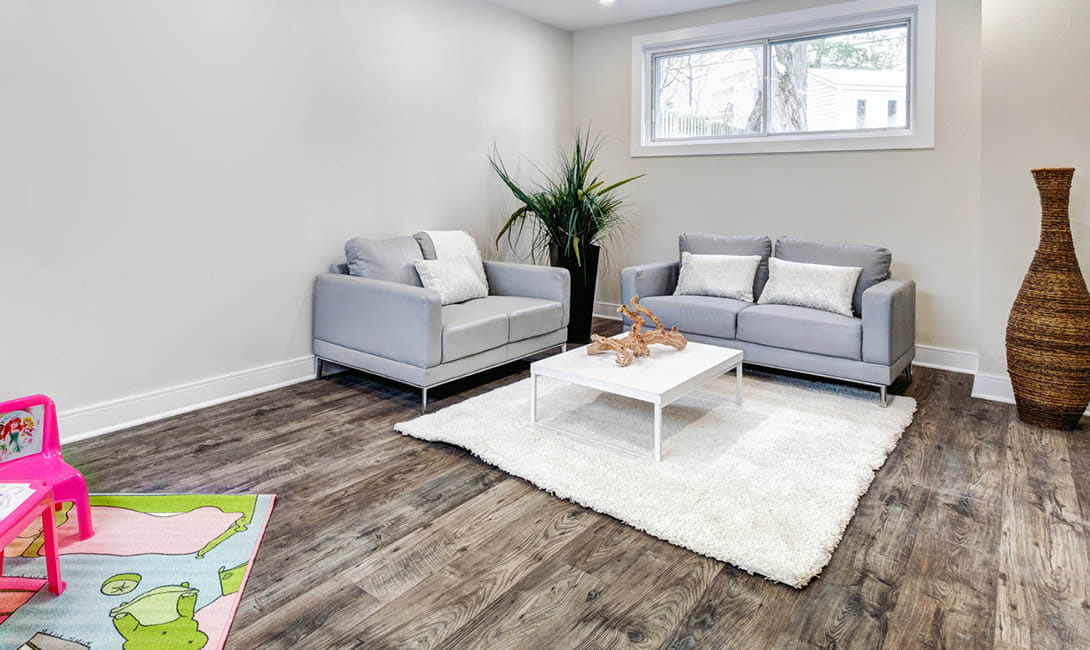If you want to get the most out of unused basement space, a basement renovation is the smart way to go. Basements are no longer just a sanctuary for bulging boxes, laundry facilities and major home systems. This space can easily be used as a playroom, movie room, hobby room, etc. However, before you can enjoy the extra living space, you’ll need to consider the best heating options to ensure the indoor climate in your basement is as comfortable as in the rest of the house.
Added value
Basement renovation ideas often centre around extra living and storage space and how to decorate the basement. Heating solutions for the basement, however, are regularly overlooked. A real pity, because why would you invest in a room that you’ll only be able to use in summer? Better to make the most of your investment so that you’re comfortable all year round and your basement renovation not only creates additional living space but also adds value to the house.
Indoor air quality
Because basements are below ground, they naturally stay cooler than the rest of the rooms in the house. This is great in summer, but not very comfortable in winter. On top of that, basements tend to retain moisture, creating the risk of mould. A dehumidifier can help with that, but if your basement renovation plans include a bathroom or kitchen space, exhaust fans are required to help expel the extra moisture.
HVAC system size
Once you know how you will use the extra space, how many rooms there will be and if there will be any bedrooms or bathrooms included, you can determine whether your existing HVAC system will be able to effectively heat your renovated basement. This calls for a professional calculation that takes into account the size of the rooms, the use and building type. So contact a certified HVAC professional to determine if your current system can handle the heat demand.
Extra capacity
If your current system can handle the additional heat demand, you can simply add the heat demand from your basement renovation. However, if it can’t, then you have two options. You can either upgrade your current HVAC system with additional units, add extra ductwork and then install a fitting
panel radiator, or you can go for a heating solution that works independently form your central heating system, such as an
electric radiator. In the latter case, you might need to run extra electrical wiring, but the advantage here is that electric radiators can be turned on and off as needed with separate thermostats including a timer, so that you’ll only use energy when it’s required.

